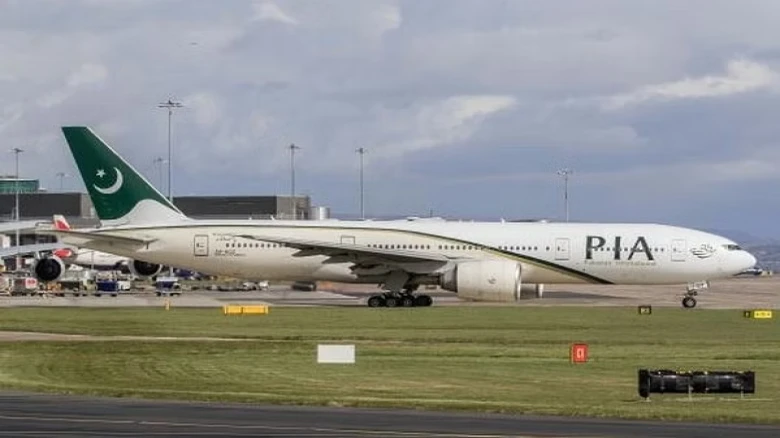Regional

Pakistan International Airlines (PIA), the country's ailing national carrier, has been forced to cancel 48 flights, affecting both...
Digital Desk: Pakistan International Airlines (PIA), the country's ailing national carrier, has been forced to cancel 48 flights, affecting both domestic and international routes, due to a crippling shortage of fuel. The unprecedented move has left passengers stranded and raised concerns about the airline's future amid a backdrop of economic turmoil and political instability.
A spokesperson for PIA cited a limited fuel supply and operational issues as the main reasons for the flight cancellations. Among the canceled flights, 13 were domestic, while 11 were destined for international destinations. Additionally, 12 other flights were delayed, causing further inconvenience to passengers.
PIA took steps to minimize the disruption by shifting affected passengers to alternative flights. The airline advised travelers to contact PIA customer care, visit PIA offices, or consult their travel agents to check their flight status before heading to the airport.
The root cause of this crisis lies in the suspension of fuel supply to PIA by Pakistan State Oil (PSO) due to unpaid dues. This move has left PIA in a precarious situation, as it grapples with the burden of accumulated debts and the imminent threat of privatization.
The Pakistan government's refusal to provide Rs 23 billion in support for operational expenses has only compounded the airline's woes. PIA requires a daily expenditure of Rs 100 million to procure fuel from PSO, a demand the state-owned oil company insists be met with advance cash payments. This requirement is unsustainable for an already financially strained airline, increasing the likelihood of more flight cancellations in the near future.
The latest fuel shortage crisis coincides with Pakistan's struggle against one of the most severe economic crises in its history. Widespread political instability has exacerbated the situation, with the country grappling with a record high inflation rate of 21.3 percent.
Pakistan's national currency, the rupee, has witnessed a steep depreciation, losing approximately half of its value against the US dollar within the past year. The nation's foreign exchange reserves have dwindled to a critically low level of around $10 billion.
Adding to the financial burden, the Pakistan government, under the caretaker leadership of Prime Minister Anwaarul Haq Kakar, increased fuel prices in September. The cost of petrol soared to Rs 305.36 per liter, while high-speed diesel reached Rs 311.84 per liter for the first time in the country's history. These price hikes further exacerbated the economic hardships faced by ordinary citizens.
Pakistan also experienced significant protests against soaring electricity bills in multiple cities, including Multan, Lahore, Karachi, and Pakistan-Occupied Kashmir (POK). Protests included the burning of electricity bills and confrontations with officials from power distribution companies, reflecting the public's frustration with the rising cost of living.
Furthermore, Pakistan witnessed a massive exodus of over 800,000 people leaving the country within the first half of the year, including a substantial number of highly skilled professionals. This trend suggests a significant brain drain from a nation grappling with a crumbling economy and the challenges of Islamic fundamentalism.
As Pakistan's national airline, PIA's ongoing struggles are emblematic of the broader economic and political challenges that confront the country. The current fuel shortage crisis serves as a stark reminder of the urgent need for comprehensive and sustainable solutions to stabilize Pakistan's economy and protect its vital institutions. The fate of PIA remains uncertain, but it underscores the urgency of addressing Pakistan's economic woes and securing a brighter future for its citizens.
Leave A Comment